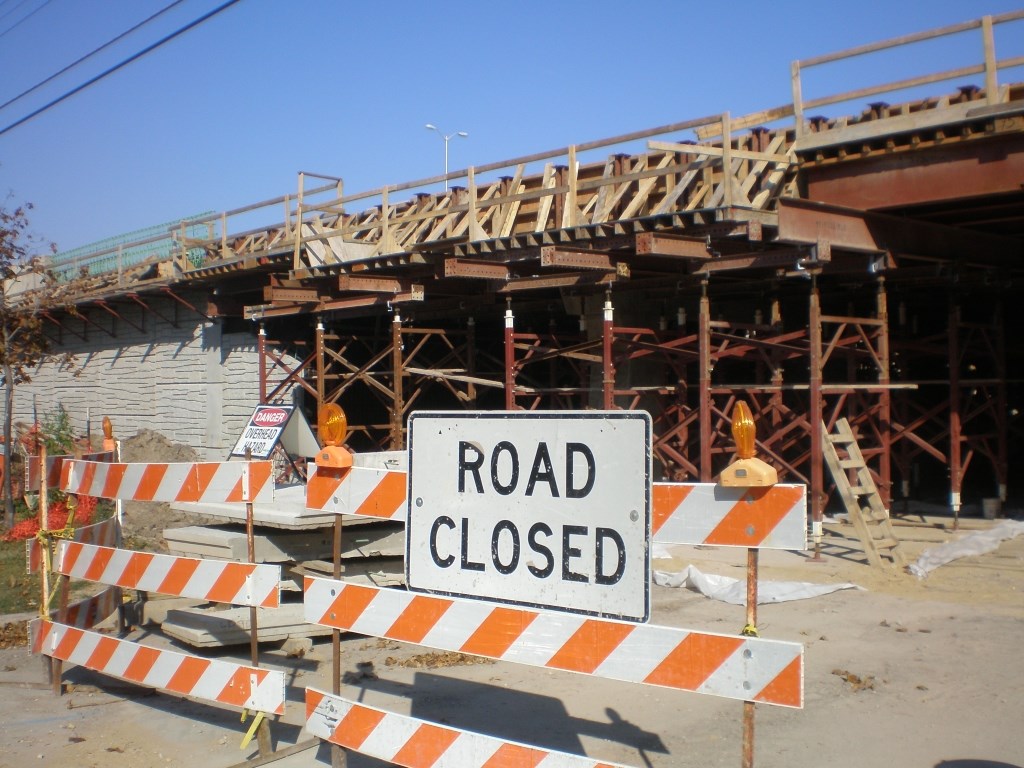Fixing Highways, Funding Still a Puzzle
Evers pushed to fix "Scottholes," and Legislature resisted. Now governor is backing off.
Two years ago, Democratic Gov. Tony Evers said this about paying for highways and other transportation programs in his first budget message to the Legislature: “It’s time to find a long-term solution to our transportation crisis…
“We’re going to be increasing fees for titles and heavy trucks, and we do have to raise the gas tax… We’re going to raise it 8-cents per gallon. The good news is, we’re also going to repeal a hidden [minimum markup] tax that costs you 14-cents a gallon. That means our plan actually makes it possible for you to pay less at the pump than you do right now.”
Republicans who controlled the Legislature — then and now — refused to raise the 30.9-cent per gallon gas tax, unchanged since 2006, and repeal the minimum-markup law.
Instead, GOP legislators raised the annual vehicle registration fee from $75 to $85, raised annual registration fee on light trucks, and more than doubled — from $69.50 to $164.50 — the vehicle title fee paid at the time of purchase or transfer of title of a new or used vehicle. Evers approved those changes as part of the two-year budget that ends July 1.
Fast-forward two years, and a COVID-19 pandemic that no one foresaw that has everyone driving less, paying less in gas taxes and purchasing and titling fewer vehicles.
Now, it’s Evers laying the political groundwork to potentially run for re-election in 2022 and his appointees at the state Department of Transportation (DOT) have said spending on highways and other programs could fall over the next two years. In their 2021-23 budget request, DOT officials did not recommend raising the gas tax, or restoring the “indexing” of that gas tax that adjusted it annually for inflation, or again raising registration or titling fees. There is also no new call to repeal the minimum-markup law.
DOT’s request also includes no mention of planning for toll roads, which would require costly roadway redesigns and not pay off for many years.
Future state spending on highways and transportation programs is uncertain because:
-Pandemic-caused drops in travel meant that the Transportation Fund collected about $107 million less than was projected in gas taxes and registration and title fees last year. State officials will soon report whether those losses continued in the current year, which ends June 30.
-When they prepared their budget request last fall, DOT officials said total Transportation Fund spending could drop by $215 million — or 3.3% — over the next two years. But $186 million of that could be offset by new federal transportation pandemic relief that was part of the package Congress passed, and then-President Trump signed, in December. That same federal pandemic-relief package also boosted regular federal highway aid to Wisconsin by $23 million.
-Local governments, whose taxing powers are limited by state laws, will also push for increases in state aids for their streets.
-DOT’s initial budget proposal also recommended borrowing $95 million more to pay for highway programs, with some of that going to rebuild the East-West Freeway in Milwaukee. Bonding authority would go from $326 million to $421 million and it would cost $10 million more to pay off those bonds by mid-2023.
But borrowing $95 million more in the next two years would be much less than amounts Walker and Republican legislators borrowed to pay for transportation programs in past budgets — $991 million in the 2013-15 budget, for example, and $805 million in 2015-17.
Advocates for transportation spending are hopeful. “Transportation played an essential role during the health emergency. It will play an equally significant role in Wisconsin’s economic recovery,” said Debby Jackson, executive director of the Transportation Development Association of Wisconsin. “Transportation investment moves everything.”
But their hopes may be dashed.
On Feb. 16, will Evers repeat his 2019 call to raise taxes and fees to “pay our bills and stop kicking the can down the road.” Not likely.
Steven Walters is a senior producer for the nonprofit public affairs channel WisconsinEye. Contact him at stevenscotwalters@gmail.com
If you think stories like this are important, become a member of Urban Milwaukee and help support real, independent journalism. Plus you get some cool added benefits.
The State of Politics
-
A Wisconsin Political Trivia Quiz
 Dec 15th, 2025 by Steven Walters
Dec 15th, 2025 by Steven Walters
-
The Fight Over Wisconsin’s House Districts
 Dec 8th, 2025 by Steven Walters
Dec 8th, 2025 by Steven Walters
-
The Battle Over On-Line Betting
 Nov 24th, 2025 by Steven Walters
Nov 24th, 2025 by Steven Walters
Transportation
-
Congestion Pricing Cuts Air Pollution in New York City
 Dec 14th, 2025 by Jeff Wood
Dec 14th, 2025 by Jeff Wood
-
FTA Tells Milwaukee to Crack Down on Fare Evasion — Even Where Fares Don’t Exist
 Dec 12th, 2025 by Graham Kilmer
Dec 12th, 2025 by Graham Kilmer
-
Will GOGO’s Bus Service Ever Get Going?
 Dec 9th, 2025 by Jeramey Jannene
Dec 9th, 2025 by Jeramey Jannene





















